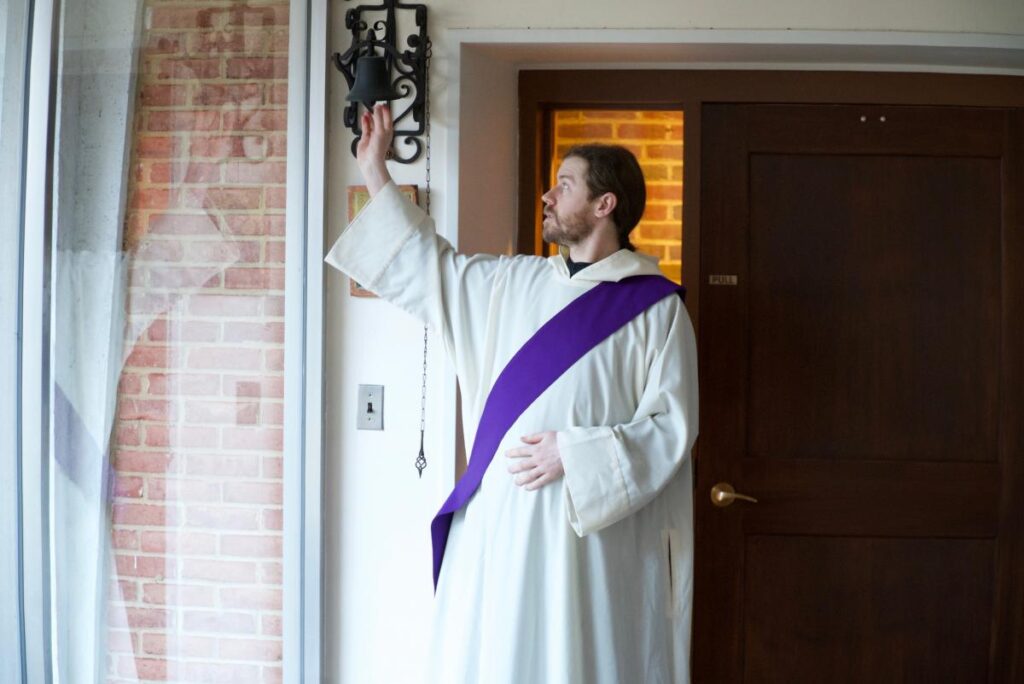Monastic Life at St. Anselm’s
All members of the community at St Anselm’s are involved in prayer and work, and share in the common life of the community.
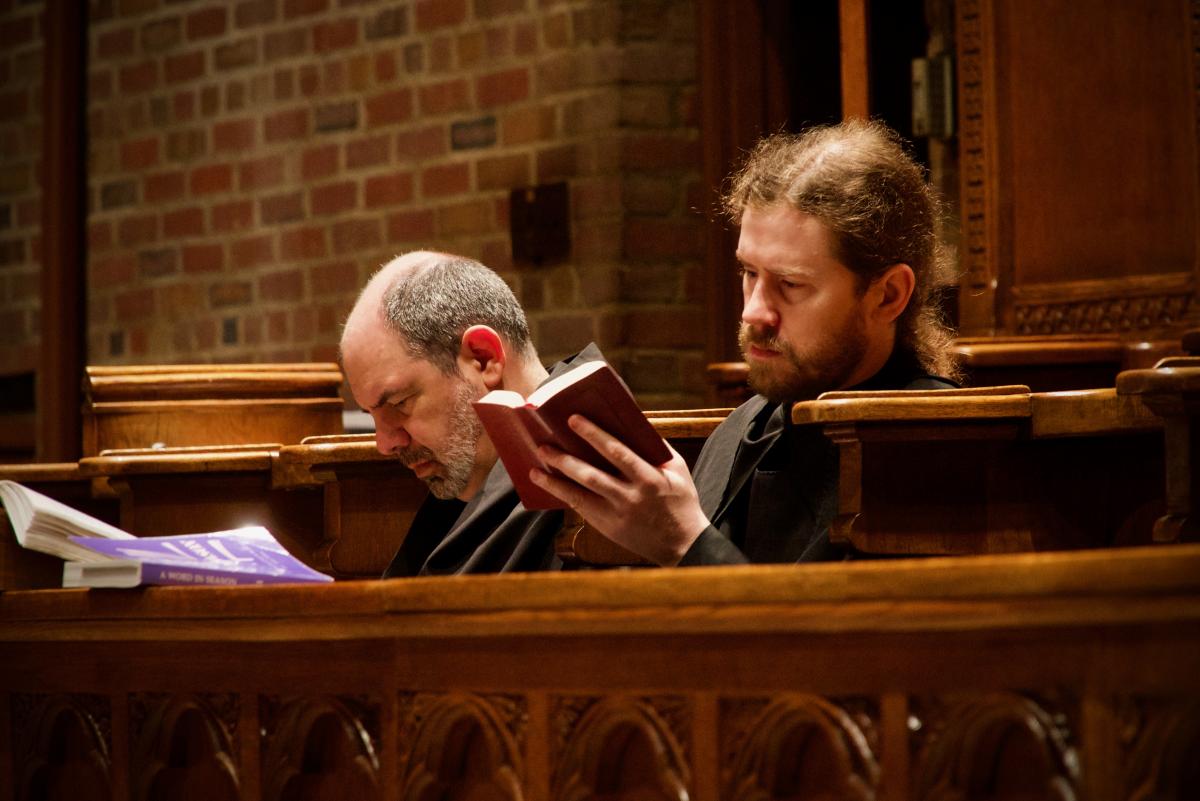
Prayer
PRAYER is undertaken by the whole community together early in the morning, at midday, in the evening and at night. A classic definition of prayer speaks of it as “the raising of the mind and heart to God.”
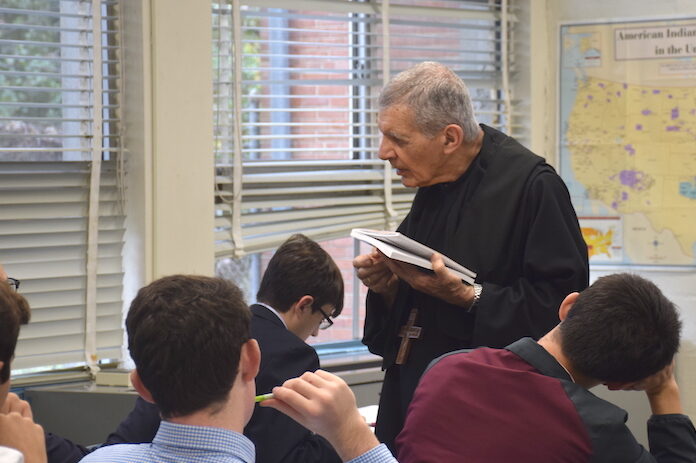
Work
WORK is necessary for a balanced life, according to the Rule, since “idleness is the enemy of the soul”. As in any household there are tasks to be done by individual members for the good of all.
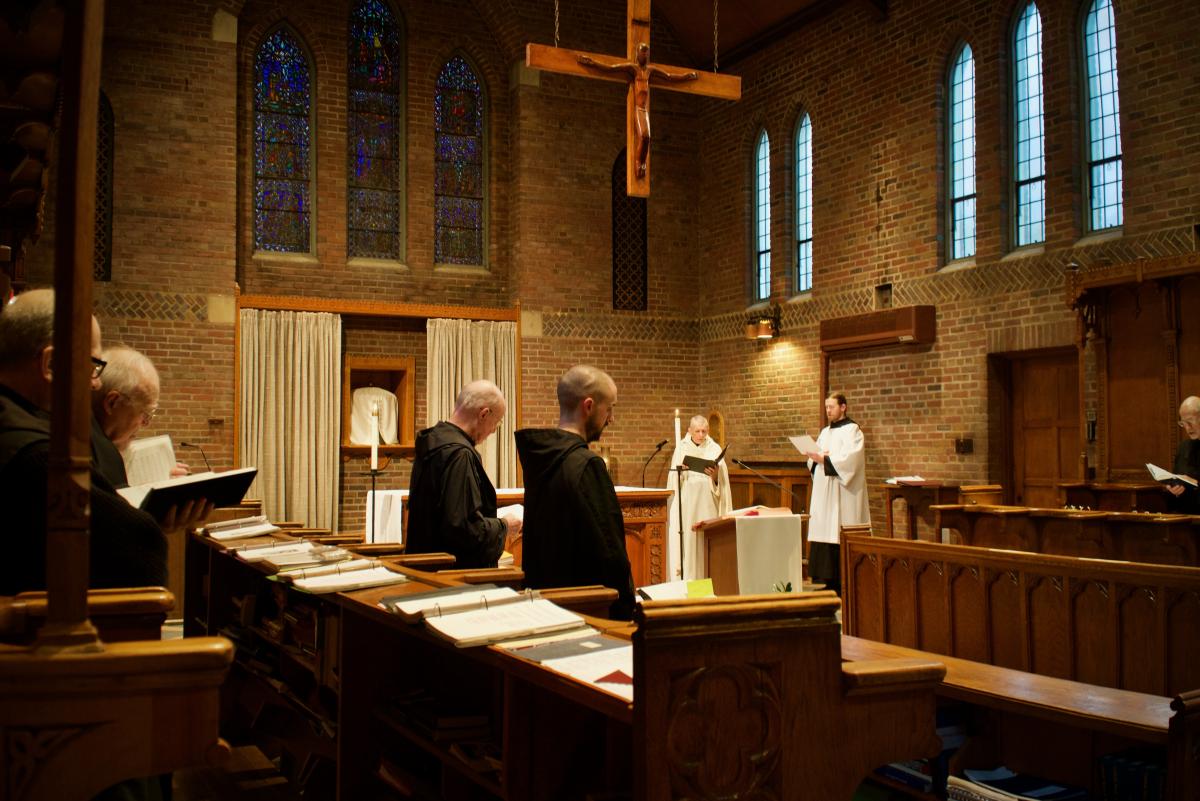
Community Life
COMMUNITY LIFE includes all the above, for even prayer undertaken individually is a contribution to the life of the monastery. Likewise the work of each monk contributes to the well-being of the whole community.
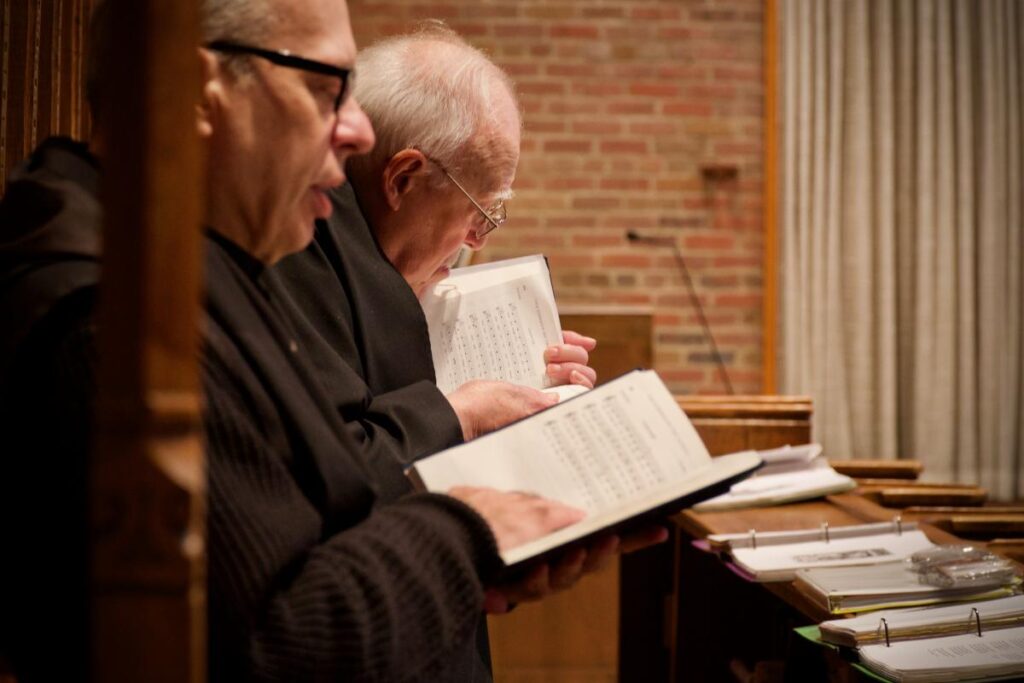
Why does a monk spend so much time in prayer?
The common prayer of a monastic community, Opus Dei, forms the daily sacrifice of praise in which together we give back to our Creator in mind, heart and voice, gifts of life and love with which He endowed us in the first place. A true sacrifice of praise requires that our minds and hearts be in tune with our voices. They are disciplined, therefore, by attentive READING of holy Scripture and theology, lectio divina, and by solitary PRAYER, in which we face up to our inmost desires. Besides this inner discipline undertaken “in the cave of his heart”, the monk receives guidance in understanding the liturgy and training in its performance, especially in public reading, so as to be able to “edify those who are listening” (Rule), and in singing, because “singing is for one who loves” (St Augustine, quoted by General Instruction of the Roman Missal). Thus the daily sacrifice of praise becomes truly the work and expression of the community.
What is a Monk?
“Monk” derives from the Greek “monos” = alone. The monk lives as a single person lovingly committed to prayer and work, to his brother monks and those whom they serve. Monks keep a certain distance from the everyday world in order to foster an inner SILENCE open to God’s Word. Blaise Pascal (seventeenth century French Catholic thinker) once wrote: “All that is bad in the world stems from one thing: that a man is unable to remain alone in his room.” While seeking to acquire this ability, at the same time a monk shares a common life with his community and, as occasion demands, interacts with others outside it.
Another derivation has the word “monastic” come from “monas” meaning “unity”: according to this, the monk follows a lifelong quest for personal integration. St Benedict’s first concern for those entering the monastery as novices is to see whether they are truly seeking God. That is the essential purpose of monastic life. Communities need to earn a living, but they do not exist to serve any purpose other than to seek God in the way that St Benedict outlines in the Rule. To the world outside, St. Anselm’s Abbey School is probably better known than our monastery. Valuable and important though our work in the school is, however, it is subsidiary to our primary purpose of seeking God.
